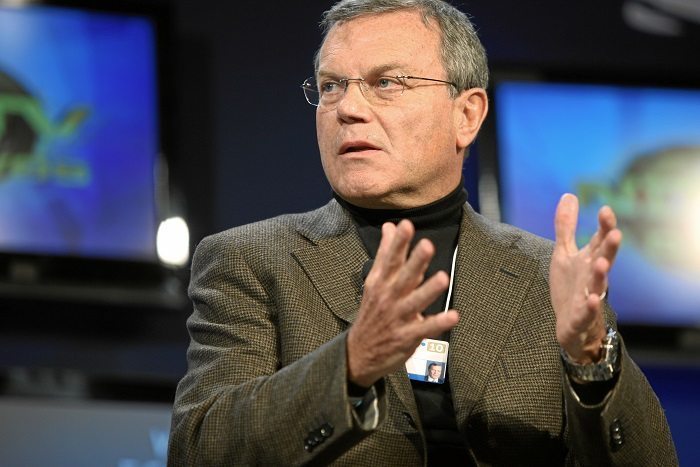Prior to his departure, Sorrell (pictured) was frequently in the media spotlight for the significant bonus pay packages he received, the largest of which was over £70m in 2015.
He was the FTSE 100’s highest paid chief executive last year even as WPP endured one of its most difficult periods in recent memory, in which it saw over one third of its share price value wiped as falling ad revenue weighed on performance.
While FTSE 100 bosses have seen an overall drop in pay packages, with Sorrell’s own bonus falling from £70.4m in 2015 to £48.1m in 2016, in light of shareholder concerns over executive pay, he was still the highest paid CEO by far, earning twice as much as the next best paid boss – Carnival’s CEO Arnold Donald.
Sorrell’s abrupt exit over the weekend, which came amid a probe into a personal misconduct allegation levelled against him, came as a shock to investors of advertising giant WPP.
The group’s shares opened 3.5% lower on Monday morning and were down 6.5% at 1111p by close of trading.
Over the last year the group has buckled under the pressure of falling ad revenue, delivering its worst set of final results in a decade and calls for clarity around choosing Sorrell’s successor.
Hildyard said the FTSE 100 firm’s share price movement on Monday reflects the fact that Sorrell is a “domineering, hegemonic figure on whom the company is over-reliant”.
“The fact they felt the need to pay him such vast sums presumably to retain his services suggests the company is perhaps in a position it shouldn’t be in,” he said.
“They have got tens of thousands of employees operating on multiple continents and yet they’re either so reliant on this single individual or he has such influence over the board and remuneration committee to whom he’s supposed to report. It’s something people should have found a bit concerning.”
CEOs are not gods
WPP did not provide further details on the outcome of the investigation, except to say the matter had been concluded and the “allegation did not involve amounts that are material”.
It added that Sorrell’s departure will be treated as him having retired and he will continue to receive payouts related to the 1.6m shares he owns in share awards over the next five years. Given WPP’s current share price of £11, the awards are worth circa £18m.
Recently, some industry figures have hailed WPP’s efforts to reform its executive pay scheme.
Hermes’ EOS team, the fund group’s dedicated stewardship and engagement team, singled out WPP as one of the most improved firms on remuneration at a briefing less than two months ago.
Ian Forrest, investment analyst at The Share Centre, added that remuneration packages, justified by good share price performance, “seems like a perfectly fair way of doing things”.
“The numbers can be large but maybe that’s just a product of the success, maybe that’s nothing to complain about,” he said.
But Hildyard believes Sorrell’s sudden departure puts executives’ oversized pay packets in perspective.
“You never know when the downfall of one of these supposed god-like business leaders is going to occur,” said Hildyard.
“That’s why there shouldn’t be too much faith or expectation visited in them. They should be paid as the fallible, mortal individuals that they are rather than these deities that drive the business forward single-handedly.”










